In this episode, you’ll get a brief introduction to the contributions of Martin Luther and John Calvin to the initiation and spread of the Protestant Reformation of the 16th century, including these events:
- 1505 Martin Luther becomes a monk
- 1517 Martin Luther nails 95 Theses on Wittenberg church door
- 1524-5 Peasants War
- 1536 John Calvin publishes Institutes of the Christian Religion
- 1541 John Calvin returns to Geneva as leader
This is lecture 2 of a history of Christianity class called Five Hundred: From Martin Luther to Joel Osteen.
All the notes are available here as a pdf.
—— Notes ——
Martin Luther (1483-1546)
- An Augustinian Monk (1505)
- Professor of Bible at Wittenberg (1512)
- 95 Theses (October 31, 1517)[1]
- Debate with Johann Eck at Leipzig (1519)
- “On 4 July Luther came into the debate. Eck prodded him with charges of being a ‘Hussite’ and a ‘Bohemian.’ This was tantamount to being labeled a communist in the 1950s, because this area still recalled the numbers of Germans expelled from Bohemia during the Hussite revolt. Luther protested Eck’s charges but finally went to the library and looked up Hus’s teachings. When he returned, he stated that many of the condemned Hussite articles were truly Christian and evangelical, and ought not to be condemned by the church. After a moment of shocked silence, there was uproar. Eck pressed on and got Luther to state that both the papacy and councils may err. This was an immediate triumph for Eck. After this, Karlstadt returned to take up the debate again, but Duke George was anxious to bring the whole thing to a close.” (Lindberg, pp. 86-7)
- Three admissions
- Officially excommunicated (1521)
- Diet of Worms (April 16, 1521)
- “My conscience is captive to the Word of God. I cannot and I will not recant anything, for to go against conscience is neither right nor safe. God, help me.”
- Translated New Testament into German at Wartburg Castle (1522)
- Marriage to Katharina von Bora (1523)
- Peasants’ War (1524-1525)
- Against the Murderous, Thieving Hordes of Peasants: “The peasants have taken upon themselves the burden of three terrible sins against God and man; by this they have merited death in body and soul… they have sworn to be true and faithful, submissive and obedient, to their rulers… now deliberately and violently breaking this oath… they are starting a rebellion, and are violently robbing and plundering monasteries and castles which are not theirs… they have doubly deserved death in body and soul as highwaymen and murderers… they cloak this terrible and horrible sin with the gospel… thus they become the worst blasphemers of God and slanderers of his holy name.”
- Finished translating Old Testament so complete Bible was in German (1534)
- Believed in the sleep of the dead
John Calvin (1509-1564)
- Child prodigy (employed by bishop as clerk by age 12)
- Conversion experience (1533)
- “God by a sudden conversion subdued and brought my mind to a teachable frame, which was more hardened in such matters than might have been expected from one at my early period of life. Having thus received some taste and knowledge of true godliness, I was immediately inflamed with so intense a desire to make progress therein, that although I did not altogether leave off other studies, yet I pursued them with less ardour.”[2]
- Published Institutes of the Christian Religion (1536)
- Geneva: the perfect Reformation city
- “So, finally, Calvin agreed to come back. But this time, he got a contract. It was a very good contract—he wrote it himself.It was called the Ordonnances ecclésiastiques (Ecclesiastical Ordinances) of the Church of Geneva, and it was among the most ambitious, comprehensive, and oppressive sets of laws ever to be enacted voluntarily by any community. It was Calvin’s old Articles, now made both broader and more specific, written by a man who understood the law thoroughly and had the upper hand. The Ordinances of 1541 and their subsequent companion laws…were Calvin’s prescription for the perfect society. He intended Geneva to act as standard bearer in the quest for the restoration of the godly life on earth.…Calvin’s reforms worked. Murder, mayhem, prostitution, and general lawlessness were so greatly reduced that the city acquired a reputation as a paragon of piety, sobriety, and hard work. Protestants all over Europe viewed Calvin’s Geneva as epitomizing the superiority of reform over the corruption of Catholicism. Geneva, rather than Basel, became the destination for wealthy and educated French religious refugees, and the city’s population swelled with the minority emigres.But order, as it always does, came with a price. The world is wicked, Calvin insisted, and the wicked require discipline. This too was provided for in the Ordinances. The most significant element of Calvin’s new regime was the enactment of his old plan to establish an official network of spies, a religious secret police. A group of layman approved by Calvin became responsible for ferreting out the sins of the rest of the community and reporting them to the authorities. On a weekly basis, any whose behavior fell short of the required standard were brought to Calvin’s attention. The police operated on commission—a portion of any fines assessed as punishment went to them.The practical result of all of this godly work was the Geneva, which had previously enjoyed its beer and wine, its prostitutes and its gambling, suddenly found itself the Singapore of the sixteenth century. Nathaniel Weiss, a nineteenth-century French freethinker, described Calvin’s Geneva:One burgher smiled while attending a baptism: three days’ imprisonment. Another, tired out on a hot summer day, went to sleep during the sermon: prison. Some working men ate pastry at breakfast: three days on bread and water. Two burghers played scuttles: prison…A blind fiddler played a dance: expelled from the city. A girl was caught skating, a widow threw herself on the grave of her husband, a burgher offered his neighbor a pinch of snuff during divine service: they were summoned before the consistory, exhorted and ordered to do penance…A burgher said “Monsieur” Calvin instead of “Maître” Calvin; a couple of peasants, following their ancient custom, talked about business matters coming out of church: prison, prison, prison…Two boatmen had a brawl, in which no one was hurt: executed. Most savagely of all were punished any offenders whose behavior challenged Calvin’s political and spiritual infallibility.”[3]
[1] en.wikisource.org/wiki/95_Theses
[2] John Calvin, preface to Commentary on the Book of Psalms
[3] Lawrence and Nancy Goldstone, Out of the Flames, pp. 146-8
—— Links ——
- Movie excerpt from the 2003 movie, “Luther”
- See all the episodes of Five Hundred: From Martin Luther to Joel Osteen.
- For a much more in depth treatment of the Reformation period, check out Brad S. Gregory’s History of Christianity in the Reformation Era class at The Teaching Company
- The three main textbooks for this class include:
- The European Reformations by Carter Lindberg
- The Radical Reformation by George Williams
- Modern Church History by Tim Grass
- Check out these other Restitutio historical podcasts
- Intro music: “District Four” by Kevin MacLeod. Licensed under Creative Commons: By Attribution 3.0 License.

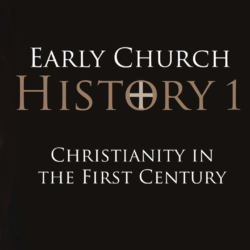
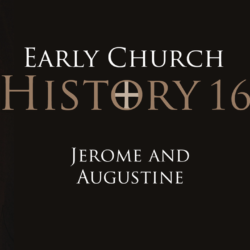
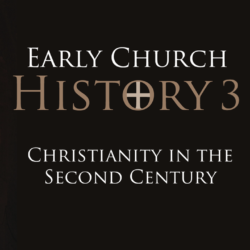
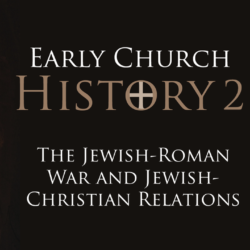
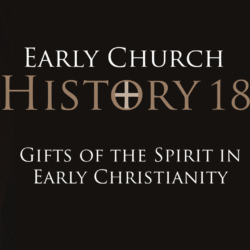
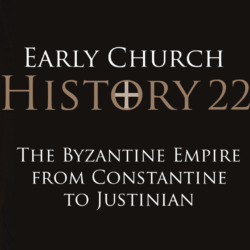
Reformers like Luther and Calvin were closer to the Catholic Church than to Humanists like Erasmus. Both replaced one tyranny with another – the tyranny of the Bible instead of the tyranny of the Church – though of course it was the Bible according to Luther or the Bible according to Calvin.
Read more at: http://www.newsletter.co.uk/news/opinion/it-was-not-luther-who-was-the-champion-of-liberty-but-erasmus-1-8214306